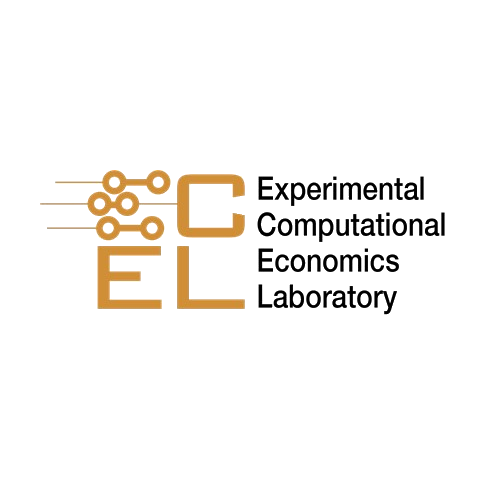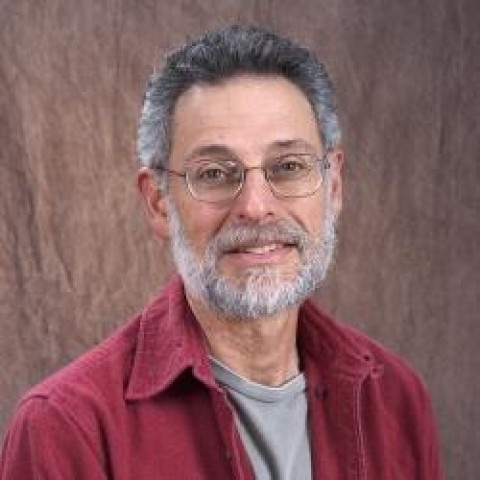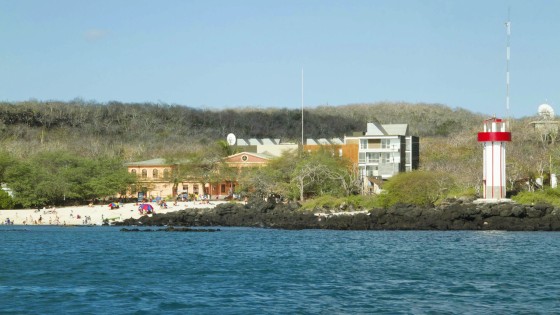Experimental Economics Conference 2022
The conference is focused on the use of experimental economics to understand issues associated with learning, evolutionary games, and/or environmental economics. These interconnected topics are critical to understanding a global society in a dynamic environment. The goal of this conference is to bring scholars from South America and the rest of the world to share research ideas and discuss new joint projects.
Organizers
- Pedro Romero, USFQ
- Mónica Rojas, USFQ
- Cary Deck, University of Alabama
- Kyle Hampton, Chapman University
- Jim Murphy, University of Alaska Anchorage
- Jean Paul Rabanal, University of Stavanger
- Olga Rud, University of Stavanger
Supported by


Call For Papers
We welcome all submissions, but scholars from Latin/South America are especially encouraged to apply. The theme for the conference will center on experimental economics, and evolutionary game theory, though outstanding papers in other areas will also be considered. You can submit a paper (including an abstract of up to 150 words), until March 27th, 2022. In case your submission is selected, you will be notified by April 18th, 2022. Each presenter will have a 30 minute talk, including Q&A. Each person may submit only one paper and present only one paper. However, each person is allowed to be the co-author of several papers submitted to the conference.
Last date to submit a paper: March 27, 2022
Notification of Acceptance: April 18, 2022
Conference Registration: from February 11 to May 28, 2022
Submit articles to: galapagos.expecon22@gmail.com
In your submission please include this information:
- Full Name:
- Position:
- Affiliation:
- Citizenship:
- Email:
- Phone:
You will receive a confirmation email for your submission.
Speakers

Daniel Friedman
Daniel Friedman is Distinguished Professor of the Economics Department at the University of California at Santa Cruz (UCSC). He is also the founder and Director of the Learning and Experimental Economics Projects (LEEPS) at the same institution. He holds a Ph.D. in Mathematics from UCSC. Professor Friedman has broad research interests in applied economic theory, with emphasis on learning and evolution, laboratory experiments, and financial markets. An author of five academic books, roughly 100 research articles, and recipient of fourteen NSF grants, and Dan is currently studying a) financial market design, b) strategic behavior in real time, and c) evolutionary dynamics of continuous strategies or traits.
His popular book, Morals and Markets: An Evolutionary Perspective on the Modern World, was published by Palgrave-MacMillan in October 2008. A second paperback edition, co-authored with journalist Daniel McNeill, appeared in June 2013 with the subtitle: A Dangerous Balance.
Schedule
Day 1: July 11
| Time | Activity |
|---|---|
| 2:30PM - 5:00PM | Group Tour to Tijeretas (Trekking) |
| 5:00PM - 6:30PM | Registration |
| 6:30PM - 8:30PM | Welcome Reception |
Day 2 July 12:
| Time | Activity |
|---|---|
| 7:30AM - 8:45AM | Breakfast |
| 8:45AM - 9:00AM | Welcome Remarks |
| 9:00AM - 10:00AM | On the empirical relevance of correlated equilibrium Keynote Speaker: Daniel Friedman |
| 10:10AM - 11:10AM | Algorithms and the CAPM. Debrah Meloso, Toulouse Business School The impact of ETF index inclusion on stock prices. Jean Paul Rabanal, University of Stavanger |
| 11:10AM - 11:40PM | Break |
| 11:40PM - 12:40PM | The role of socio - economic status on luxury expenditures: Evidence from a survey experiment among middle to low-income households. Juan David Robalino, Universidad San Francisco de Quito Uptake, Use, and Impact of Islamic Savings: Evidence from a Field Experiment in Pakistan. Annika Mueller, University of Groningen |
| 12:40PM - 2:00PM | Lunch |
| 2:00PM - 3:30PM | Gender bias in reporting expected ranks when performance Feedback is at stake. Aurora García Gallego, Universitat Jaume I The Economics of Women ’s Entrepreneurship. Julia Seither, Universidad del Rosario Gender gaps in exam performance at the top. Catalina Franco, Norwegian School of Economics |
| 3:30PM - 4:00PM | Break |
| 4:00PM - 5:30PM | Effects of a Role Models Intervention on Promoting STEM and Entrepreneurship Activities among High School Students. Francisco Flores, University of Kassel Measuring preferences for competition. Lina Lozano, New York University - Abu Dhabi The Endogenous Formation of Common Pool Resource Coalitions. Jim Murphy, University of Alaska Anchorage |
| 7:30PM - 10:00PM | Dinner |
Day 3: July 13
| Time | Activity |
|---|---|
| 8:00AM - 9:00AM | Breakfast |
| 9:00AM - 10:30AM | Acute Stress Decreases Competitiveness Among Men. Ingvild Skarpeid, Norwegian School of Economics and FAIR Exploring the Intensity of Higher-Order Risk Attitudes, Cary Deck, University of Alabama. A Certainty Effect for Preference Reversals Under Risk: Experiment and Theory. Paul Feldman, Johns Hopkins University |
| 10:30 - 11:00AM | Break |
| 11:00 - 12:30PM | Does the deservingness heuristic explain the effects of effort, luck, and need in a redistribution experiment? Reuben Kline, Stony Brook University The response of illegal mining to revealing its existence. Santiago Saavedra, Universidad del Rosario Disentangling risk attitudes and other-regarding preferences: Theory and experiment. Kristian Lopez, University of California Santa Cruz |
| 12:30PM - 13:30PM | Lunch |
| 13:30PM - 2:30PM | A Horse Race of Monetary Policy Regimes: An Experimental Investigation. Luba Petersen, Simon Fraser University Bubbles in Asset Markets and the Heterogeneity of Beliefs. Charles Noussair, University of Arizona |
| 2:30PM - 2:45PM | Closing Remarks |
Registration
- Fee: 150 USD for scholars outside South America and 80 for scholars from South America, Ph.D. or Master students $50.
- Please only pay when you have received the confirmation mail for your accepted submission.
- Payment methods: credit card
Accommodation in the Galapagos Islands
Basic travel information
The Galápagos Islands can only be accessed through domestic flights within Ecuador. Travellers should plan travel through one of two major cities: Quito or Guayaquil. It is recommended that travellers purchase airfare from one of these cities to the Galápagos separately from their international airfare to arrive in Ecuador. There are sometimes promotions available for flights from mainland Ecuador to the Galápagos that cannot be accessed through international airfare to Ecuador. This also gives travellers the wonderful option of staying in one of these historic cities for some time before continuing on to the Galápagos Islands. For travellers intending to stay only one night in Quito or Guayaquil before leaving for the Galápagos, lodging near the airport is recommended, since flights to the Galápagos leave early in the morning and transportation between the airport and the metropolitan area can be complicated. For travellers opting to spend multiple nights in one of these cities, lodging within the metropolitan area is recommended in order to have the opportunity to experience the city.
Visitors to the Galápagos Islands are required to pay a National Park Entrance Fee. The fee is $100 for each adult foreign visitor and $50 for each adult Ecuadorean visitor. These fees are reduced by 50% for children under 12 years of age, as well as visitors from Comunidad Andina and Naciones del MERCOSUR. This fee must be paid in cash at the San Cristobal airport upon arrival. In addition, there is a fee of $20 for each passenger flying to the Galápagos that must be paid upon departure from the airport in Quito or Guayaquil.
Travellers visiting only during the conference must arrive to the Galápagos on the island of San Cristobal (be advised that there are multiple islands that have airports). The code for the San Cristobal airport is SCY. The following airlines have service to San Cristobal, either from Quito with a stop in Guayaquil or directly from Guayaquil.
San Cristobal does not have luxurious hotels, although some of them might be classified as 4 star hotels. They are modest, but clean, and sometimes very colorful and eclectic. Below are estimated costs for lodging in San Cristobal, which include tax and daily breakfast.
Golden Bay, price range $400 -900 per room per night
Walking distance: less than 1 km of the USFQ Campus
https://goldenbay.com.ec/wp/
Galápagos Sunset Hotel, price range $150 -$400 per room per night
Walking Distance: approx. 1 km
https://www.galapagossunset.com.ec/
Casa Blanca Hotel, price range $150 -$300 per room per night
Walking distance: approx. 1 km
https://www.galapagosislands.com/san-cristobal/hotels/casa-blanca
Hostal Casa de Nelly, less than $80
Walking distance: approx. 300 mts
http://casadenellygalapagos.com.ec/
Citizens of only a small number of countries are required to possess a visa in order to enter Ecuador. Visitors may stay without a visa for a total of 90 days over a 12-month period. More information can be found using the link below.
http://www.ecuador.org/nuevosite/serviciosconsulares_visas_e.php
The Galapagos Islands
The Galápagos Islands are a wonderful place to spend as a tourist with or without family (including children). There are two main ways that tourists visit the islands: one can tour around the islands via a cruise that lasts several days or else opt for a stay in one or more of the islands and do day trips to the inhabited islands.
Located in the Pacific Ocean, 1000 kilometers from the South American mainland, this Ecuadorian Archipelago, made up of 14 major islands and more than 60 smaller islands and islets, surrounded by its marine reserve, the world’s second largest, is known as a "living laboratory" or "showcase" of evolution. The combination of converging marine currents, a volcanic geological structure, and oceanic isolation has resulted in this “melting pot” of unique species, found nowhere else on earth. Some of the most famous examples are the marine iguanas, the giant tortoises (called "Galapagos") and the 13 varieties of Darwin’s finches.
This uniqueness inspired Charles Darwin’s theory of evolution, following his visit to the islands in 1835. Since then, they have become a Mecca for scientific investigation. Today, as a strictly protected National Park, and the world’s first natural area designated by UNESCO as a World Heritage Site, the Galapagos are also one of the world’s most fascinating tourist destinations and a true wonder of nature.
COVID
The USFQ follows the guidelines provided by the national authorities regarding any restrictions and/or requirements due to COVID on incoming travelers and for universities, public spaces, businesses, and the like. These may include vaccine certificates, PCR tests, mask use for indoors and outdoors, and number of people allowed in any spaces. Since this is continuously changing due to the nature of COVID, we highly recommend you keep updated following the guidelines of the official site of the Emergency Operations National Committee (COE in Spanish)
https://www.gestionderiesgos.gob.ec/resoluciones-coe/
We know these are in Spanish, thus we encourage you to get informed via your own embassy. The percentage of vaccinated people in the Galapagos Islands is more than 97 percent, and during the pandemic the islands have not been a hot spot for the virus.

